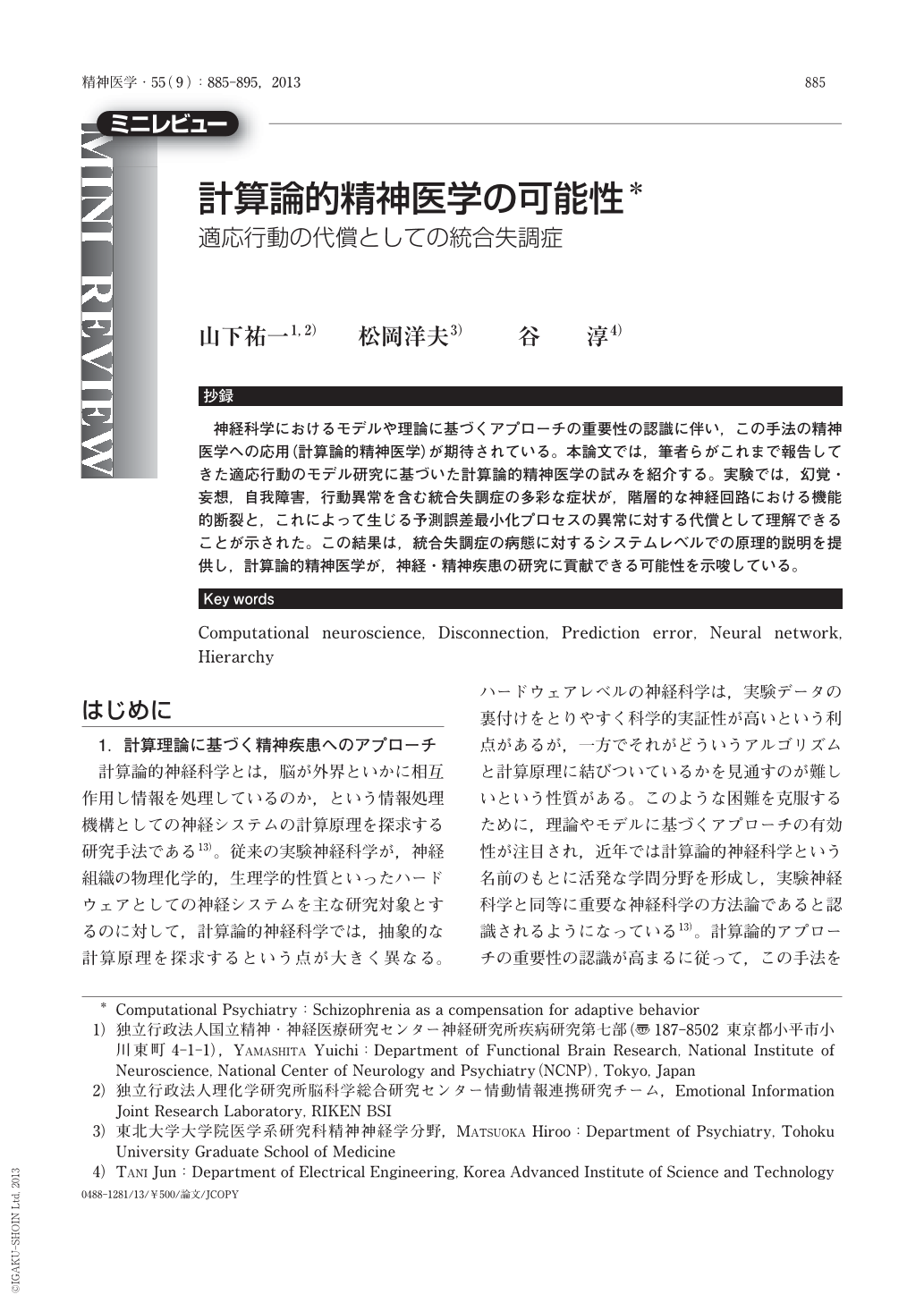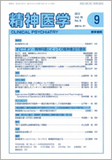Japanese
English
- 有料閲覧
- Abstract 文献概要
- 1ページ目 Look Inside
- 参考文献 Reference
- サイト内被引用 Cited by
抄録
神経科学におけるモデルや理論に基づくアプローチの重要性の認識に伴い,この手法の精神医学への応用(計算論的精神医学)が期待されている。本論文では,筆者らがこれまで報告してきた適応行動のモデル研究に基づいた計算論的精神医学の試みを紹介する。実験では,幻覚・妄想,自我障害,行動異常を含む統合失調症の多彩な症状が,階層的な神経回路における機能的断裂と,これによって生じる予測誤差最小化プロセスの異常に対する代償として理解できることが示された。この結果は,統合失調症の病態に対するシステムレベルでの原理的説明を提供し,計算論的精神医学が,神経・精神疾患の研究に貢献できる可能性を示唆している。
Goal-directed human behavior is enabled by hierarchically-organized neural systems that process executive commands, associated with prefrontal cortex, in response to sensory and motor signals from primary and association cortices. Psychiatric diseases and psychotic conditions are postulated to involve disturbances in these hierarchical network interactions, but the mechanism for how aberrant network signals are generated, and a coherent systems-level framework linking such signals to specific psychiatric symptoms, remains unexplored. Here, we demonstrate that neural networks the containing schizophrenia-like deficits can spontaneously generate uncompensated signals with properties that explain psychiatric disease indications, including fictive perception, altered sense of self, and unpredictable behavior. To distinguish dysfunction at the behavioral versus network level, we monitored the interactive behavior of a humanoid robot driven by a hierarchical neural network containing the disconnection deficits hypothesized in schizophrenia. Mild perturbations in network connectivity resulted in the spontaneous appearance of uncompensated prediction errors and altered interactions within the network without any external changes in behavior, correlating to the fictive sensations and agency experienced by episodic disease patients. In contrast, more severe deficits resulted in network dynamics transiently locking in unstable equilibria, resulting in overt changes in behavior similar to observations from chronic disease patients. These findings demonstrate that prediction error disequilibrium may represent an intrinsic property of schizophrenic networks and provide an explanation for the severity and variability of disease symptoms. Moreover, they support a systems-level framework for psychosis involving the generation and perception of maladaptive computations within hierarchical neural networks. Finally, these results reveal a conceptual approach to psychiatric disease that may lead to the development of a new quantitative class of clinical tests for diagnosis and therapy.

Copyright © 2013, Igaku-Shoin Ltd. All rights reserved.


